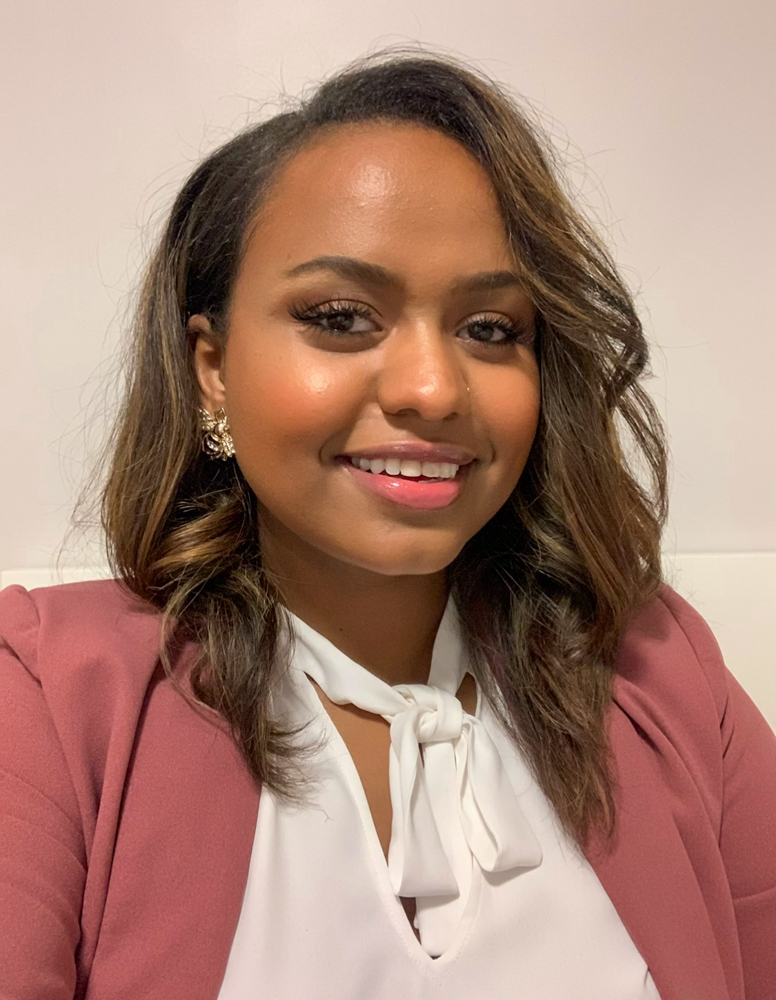Convocation Spotlight: MD '24 grad Ruth Legese
14 June 2024

MD '24 grad Ruth Legese. Photo supplied.
Having witnessed and survived limited access to quality health care in Africa where her family originated, MD graduate Ruth Legese is an empathic advocate for equity-seeking groups in Canada. We contacted Legese to learn more about what inspired her to pursue a career in medicine, the support network that helped her through a demanding degree during a pandemic and how she plans to make an impactful difference in the lives of her patients.
What initially drew you to medicine?
My interest in studying medicine was built over a series of meaningful personal experiences throughout my childhood in Ethiopia, Kenya and Canada. While a child refugee in Kenya, I faced the harsh realities of global health disparities, contracting malaria in an environment where access to quality health care was limited. My mother's misdiagnosed thyroid cancer, initially treated as heart disease, further highlighted these disparities. These experiences, however, were a stark contrast to my first Canadian health-care interaction — my immigration medical exam in Winnipeg.
While analyzing these differences ignited my interest in caregiving, medicine and bridging the gap in advocating for equity-seeking groups in health care, my interests were further refined throughout my adolescence while my parents fostered 30+ children, most of whom were Indigenous. Interpreting for my parents during all the children’s clinic visits allowed me to not only further my understanding of medicine, but also made me a witness to the profound impact doctors, especially pediatricians, can have on a patient’s entire life trajectory. These experiences solidified my aspiration to pursue a career in medicine, with a focus on health equity, Indigenous health and global health.
What are you most proud of from your time in the program?
I'm most proud of finding my voice and confidence to speak up about racial biases in medical education and patient care that I have long experienced as a BIPOC woman, but was previously too intimidated to discuss. For BIPOC who grow up in a predominantly white setting, discussing personal experiences with racism can feel unsafe.
Vulnerability may often be met with racial gaslighting from those who do not share our experiences, leaving us feeling anxious, isolated and questioning our experiences. The Black Medical Students’ Association (BMSA) gave me a supportive space to find this voice and contribute to meaningful projects such as co-authoring the Calls to Action, advocating for the hiring of a Black health lead, facilitating the establishment of the Black applicant admission process and the annual Community Health Fair.
What was the biggest challenge you faced during your degree?
Likely shared by many of my first-generation physician classmates, my biggest challenge was simply navigating the medical education system while balancing studies, research and extracurriculars, without the guidance that may come from having a Canadian or English-educated family in medicine. Being alone in a new city during a global pandemic that moved the majority of our two years of pre-clerkship online further compounded the navigation challenges. However, I am very grateful for the amazing physician mentors and classmates that I did eventually meet during clerkship! I would not have had such a positive overall experience without them.
How did you stay motivated and who helped you keep going when things got tough?
I stayed motivated by staying connected to global health work through my role as the Global Health Education & Advocacy Local Officer, reminding me of my purpose in pursuing medicine. My Christian faith, through church and prayer, was a significant support. I owe much to my family, my partner Mugo, supportive friends in my cohort, Sophia at the Faculty of Medicine & Dentistry’s Office of Advocacy and Wellbeing, and mentors Nicole Johnson and Sarah Forgie for being there when it mattered most. My family's unwavering support, especially their move to Edmonton for my fourth year to cheer me on after retiring to Ethiopia in recent years, was invaluable.
What advice would you give to a student thinking of entering this program?
Medicine is a challenging yet rewarding pursuit. If it gives you your sense of purpose, go for it, regardless of your background. Patients deserve relatable, caring advocates like you! Prioritize mentorship, and establish strong social and mental supports early on — they are crucial for your success and endurance in this field. No matter how unconventional of a candidate you may feel, your unique perspective is invaluable. Believe in your ability to make a difference.
What have you learned about yourself?
I’ve learned that amiability, adaptability and empathy are my greatest strengths. These qualities have helped me deeply connect with patients and colleagues alike, be a better advocate and create supportive working relationships with strong communication skills. I will use these traits to continue building uplifting health-care relationships that contribute to health-equity goals.
What comes next for you?
I'm excited to be moving back home to Calgary to begin my general pediatrics residency at the Alberta Children's Hospital for the next four years. It feels like a full-circle moment for me, getting to serve my community and training in the hospital where I spent countless hours interpreting our foster children's visits.